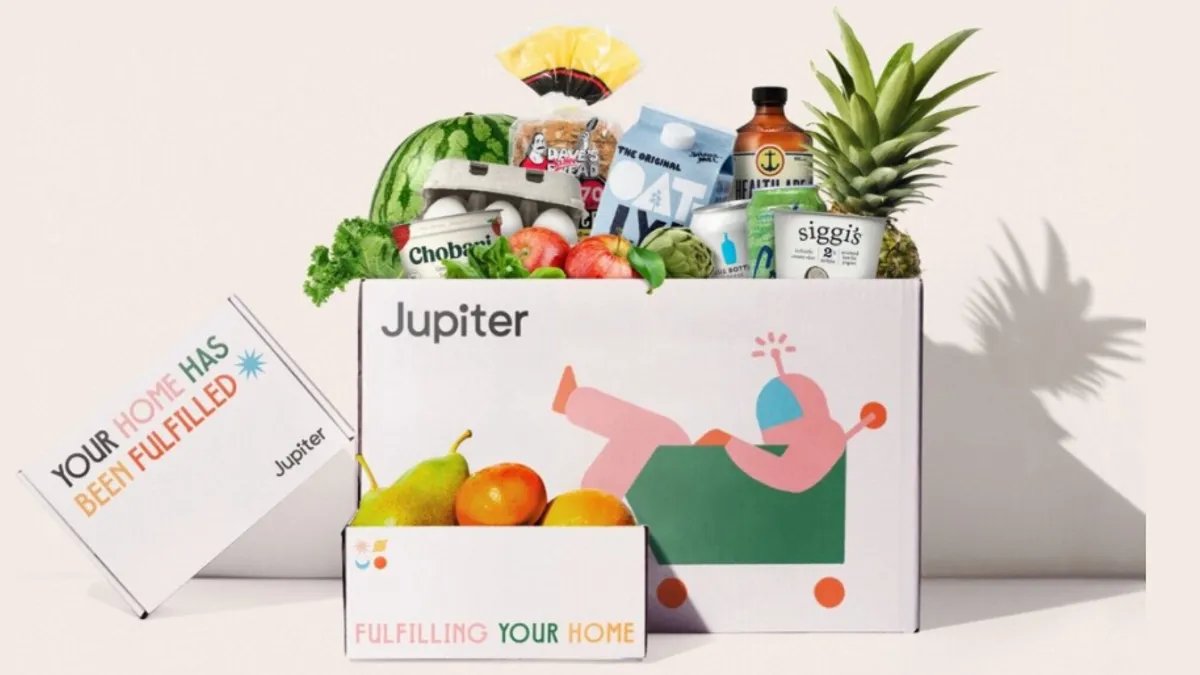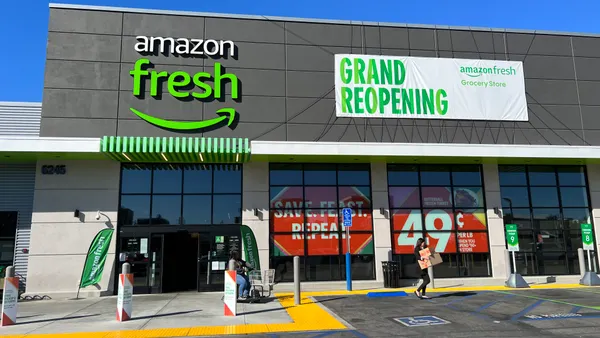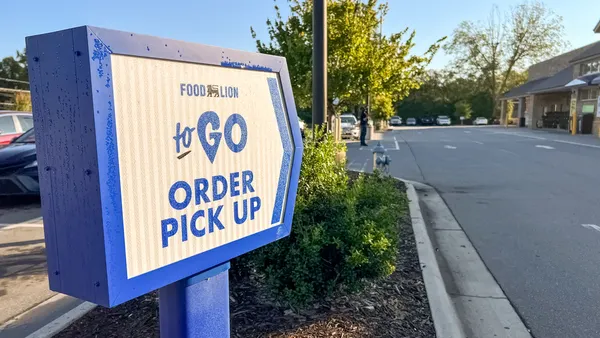Dive Brief:
- Jupiter, a San Francisco-based grocery delivery and meal planning service, just raised $2.8 million in seed funding, TechCrunch reported. The service, which costs $45 per month, allows members to set up an automatic reorder of their favorite items each week and guarantees each member a weekly delivery slot.
- Using a members’ favorite items list, Jupiter’s algorithms attempt to make a complete grocery list for the customer, which is approved or adjusted by the member before submitting it. Each customer typically has one person to deliver their orders at the same time every week, in order to learn the customers’ preferences.
- The service includes prepared meals, meal kits, snacks and traditional grocery products. Jupiter partners with food suppliers and has its own warehouse where items are stocked and orders are fulfilled.
Dive Insight:
The COVID-19 pandemic has increased the value and accelerated expansion plans for e-grocers and grocery delivery services, from startups to large players.
Jupiter fills orders from its own warehouse hub, allowing it to streamline its offerings and control inventory to reduce food waste. However, due to decreased supply and increased demand during coronavirus, the company also sends shoppers to stores including Costco, Trader Joe's, Whole Foods and Safeway at no extra cost in order to fulfill orders.
Jupiter hopes to differentiate itself from competitors with a personalized, high-touch approach to service. In addition to automatically generating weekly grocery lists, the company touts an automated meal planning service that utilizes items on shoppers' lists and can be easily adjusted. The company told San Francisco Weekly that users save about nine to 12 hours each month using the service.
Customers can request their orders be delivered inside the house and stocked in their kitchen — a similar service to Walmart’s InHome Delivery, the membership program that company began testing last year.
But most shoppers are not comfortable with in-home service during the pandemic. To protect customers and shoppers, Jupiter has made contactless delivery the default option, but if an in-home visit is required for an elderly customer, its shoppers will use hand sanitizer when they enter and leave the house. All shoppers will be provided with N-95 masks and gloves that are replaced after every visit, and are temperature-screened before and after each shift.
There are other limitations to Jupiter's service, including a hefty membership fee compared to Walmart’s concierge service or Instacart and Amazon. Affluent shoppers in markets like San Francisco may not be bothered by this, but they may also struggle to see the value in high-touch service and meal planning at a time when many are sheltering at home, reconnecting with home cooking and planning their own menus. The membership price is also accompanied by expensive products like $2.39 for an avocado or $6.05 for a gallon of milk, according to TechCrunch.
Still, Jupiter notes that because of coronavirus, more customers are wanting to cook at home and are avoiding the grocery store, resulting in a slew of new customers. The company's $2.8 million in funding happened before COVID-19, and investor interest may very well be significantly higher these days.
Online grocery sales hit a record $6.6 billion in May, according to Brick Meets Click, leading to flush funding rounds for online grocery companies. Instacart announced last week it received $225 million in new funding and now has a $13.7 billion valuation, while Imperfect Foods last month landed $72 million in Series C funding.














